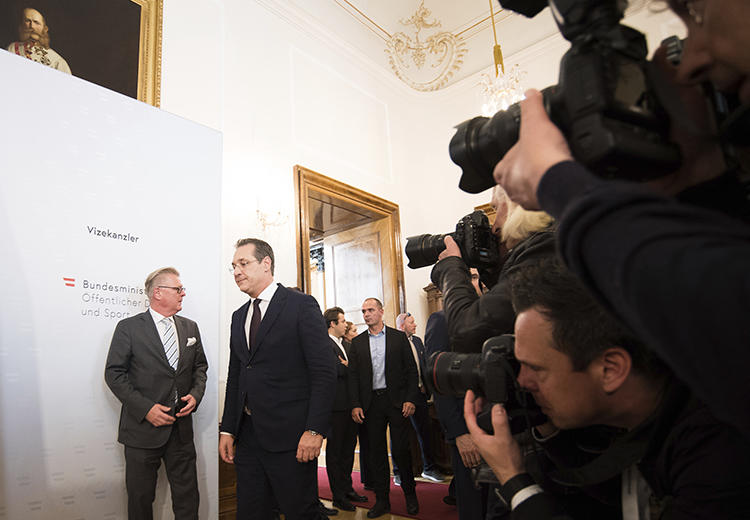Berlin, June 12, 2019 — German authorities should reject criminal complaints filed by former Austrian Vice Chancellor Heinz-Christian Strache against news outlets that published a video that led to his resignation, the Committee to Protect Journalists said today.
On June 4, Strache filed two identical criminal complaints at the public prosecutor’s offices in Munich and Hamburg against “all persons” who were “responsible for the production, distribution, and publication of the so-called Ibiza video,” according to the text of the complaint as reported in news reports and confirmed by the Munich prosecutor’s office in an email to CPJ.
The “Ibiza video” refers to a video first published on May 17 by independent German newspapers Süddeutsche Zeitung, based in Munich, and Der Spiegel, based in Hamburg, which shows Strache talking in Ibiza, Spain, in 2017 with a woman who was posing as an investor connected to Russian oligarchs, which raised questions about Russian influence in Austrian politics and media, according to news reports.
Following publication, Strache, then Austria’s vice chancellor and chairman of its right-wing Freedom Party, resigned from his government post and his leadership in the party, and the country’s governing coalition collapsed, according to those reports.
“The Munich and Hamburg prosecutors should reject the criminal complaints filed by Heinz-Christian Strache, which object to the publication of footage that was in the public interest with the intention of revealing possible corruption,” Gulnoza Said, CPJ’s Europe and Central Asia program coordinator, said in New York. “Journalists should be able to report on affairs of public interest without fear or intimidation. Criminal complaints against the media have no place in Germany, which has always set high standards for press freedom.”
Strache’s complaint, which does not mention the outlets or any journalists by name, alleges that the publication of the video constituted a violation of privacy and slanderous harm to his reputation, allegations that could carry a maximum of five years in prison for anyone charged and found guilty, according to Austrian daily Der Standard.
CPJ emailed Strache for comment through the press department of the Austrian Freedom Party, but did not receive a reply.
Following his resignation, Strache alleged that he had been the victim of illegal entrapment and a concerted “dirty campaign” to discredit him, according to news reports. It remains unclear who filmed the video, and the newspapers have not revealed their sources, according to those reports.
In an email to CPJ, Anne Leiding, a spokesperson for the Munich prosecutor’s office, said the office is “currently examining the submitted complaint” and would consider the public interest of the video’s publication while deciding whether to open an investigation.
